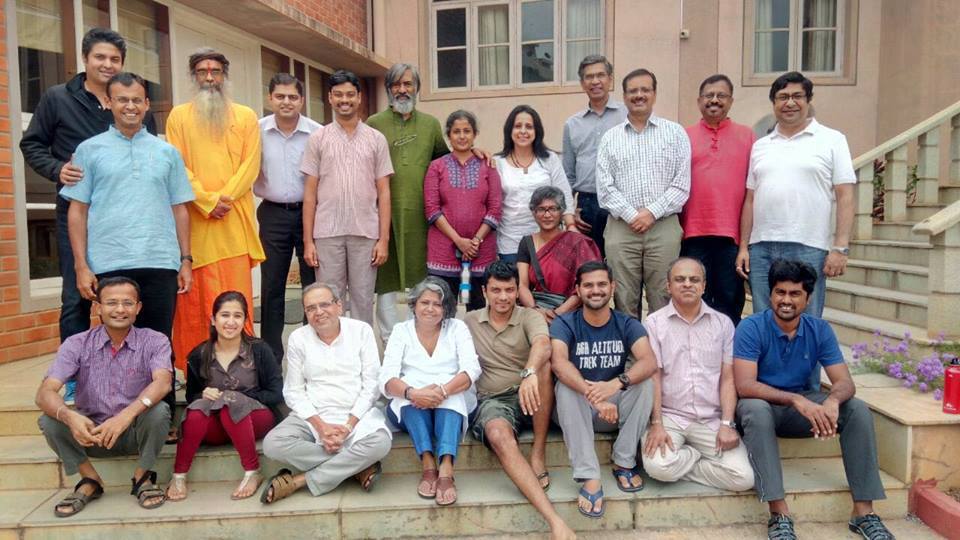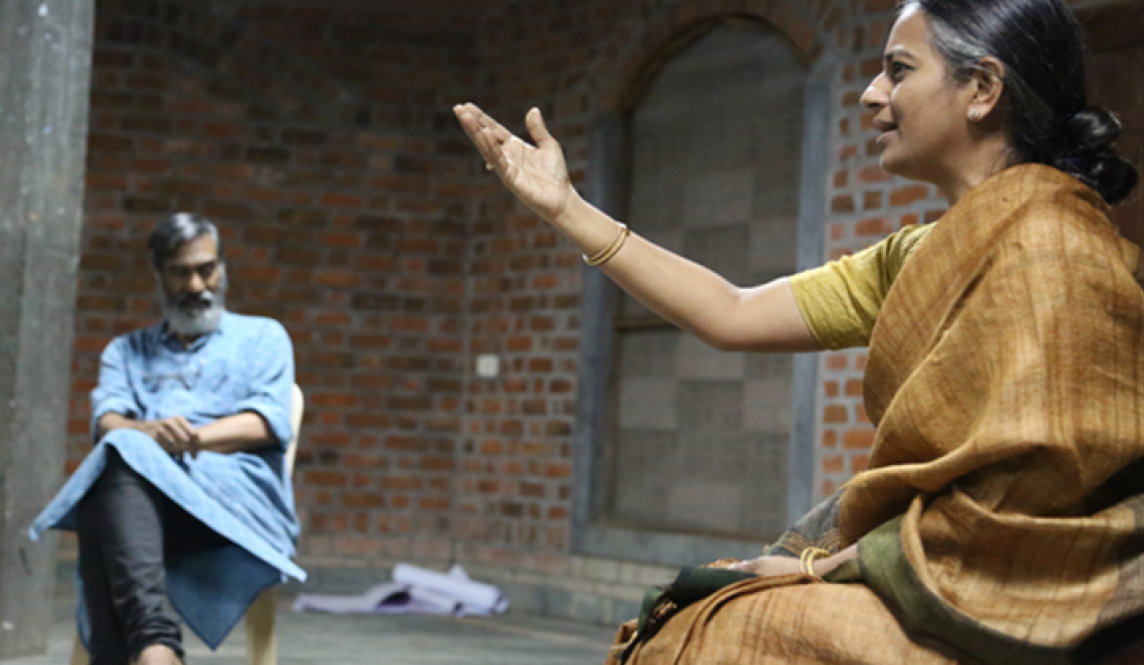When the world is not throwing any challenges at me, when I am sailing smoothly through life, it is unlikely that I will feel any internal tensions. However, the uncertainlties and imponderables of life are likely to shake up my equilibrium sooner than later. Also, one makes choices in life, one decides to get married, change jobs, change locations, a loved one passes on, Organizations make drastic changes, political upheavals happen, economic and social contexts change and so on. The most popular meme goingaround these days is the idea of a VUCA world. These changes shake up the meanings of my self, others and my world that I take for granted. This unsettling of my meaning making frame creates inner tensions, I feel inadequate, confused or anxious because I experience a gap between “What is happening” and “What I wish for”. Meaning making leads to choice making and this choice emerges as Role shaping in the context. The term Role-Identity refers to this process.
When I experience this tension, I am likely to experience five possible urges within me:
- Urge to re-establish order; quite often to re-establish order the old, known way
- Urge to treat the gap as a challenge and fight/ take it head on
- Urge to recreate/ provide an emotional infrastructure, to soothe people getting affected
- Urge to recreate knowledge structures as a means to address the gap
- Urge to step back from the above chaos, and ones impulses and compulsions and examine the genesis of the gap – “Where is my expectation coming from? Where is the World’s disturbance coming from? What meanings am I operating from? ...”
These are deep, primal pulls from within, are experienced by everyone, and these archetypal energies are not conditioned by or operate according to any external models. These deep inner propensities (not instinctive, as instinct is generally understood as a bodily action) are part of being human. These propensities seem to be universal, as all cultures talk about at-least the first four archetypes; the more ‘modern’ cultures do not talk about the fifth, though all ancient cultures do. This could be because of dogmatism. As dogmatism does not allow for deep questioning of the hegemonic discourse. I think the fifth urge to question the existing paradigm is not encouraged, even though this must be experienced by people. When it does come through, it usually is violent and ‘revolutionary’. Cultures, societies and organizations that give space for the fifth propensity will nurture the process of dialogue and consensus based change.
It is important to note that every human has the five urges – there is no one in this universe, in a manner of speaking, who does not experience these evocations. For example, everyone in this universe has a sense of order, but the way in which a person expresses or deals with this need for order could be very different. When I directly acknowledge this and act out, this gets expressed; when I don’t express this and I am blocked from acting out this need for order, this becomes a disowned part of me.
The five Pandava Princes of the Mahabharata exemplify these evocations beautifully. The many stories and sub plots of the epic portray the inevitabilities of human life through very wide range of situations and crises. They are therefore a symbol of the archetypal energies. The behavioural patterns described in the Mahabharata are more in the nature of Role-Identities, though the description of the inner turmoil of these heroes reflect the tension between the archetypal energy and the contextual constraints.
Pandava Profile Tool
The Pandava Profile Pattern indicates which of these five propensities I am likely to act from and which of these am I likely to not act from. For example, if I have a very strong Yudhistra propensity and I encounter a context requiring order to be created, I may find the energy and act confidently in creating order; while if I encounter a context requiring power to be deployed, and lets say I have disowned the Bheema propensity in me, I may end up stating what is to be done without knowing how to deploy power in that context (even though I perceive power is what is required to be deployed in that context). I might even judge and criticise the actions of others if it does not conform to my expectations, but I will disown my choice of influencing the context.
As a coach, we are trying to look at the inner drama of the person and understand the different voices and pulls and pushes within the person through their Pandava Profile Scores.
Pandavas and Coaching
When we are working with a person in a coaching context, we are actually enabling the person to understand these propensities and helping them see in what forms these evocations/ provocations impact them. We therefore help them get in touch with their dilemmas of choice making, enabling them to see where they are getting stuck and enabling them to make choices. As a coach, I ought to be able to listen, quietly and openly, to any of these five energies and be awakened/aroused/ challenged by any of these five without getting carried away into my own struggles and dilemmas. I learn to resonate, not to identify with. This requires one to constantly play with these energies within: Can I be comfortable with various expressions of Yudhistra in me, Bheema in me and so on… We may never be perfectly comfortable in every of these; can we be more or less capable of listening to each of these evocations. The more we introspect and “play” with them the more we become capable of understanding the nuances of the archetypal energies and the forms that the Role- Identity will take. When I am listening to a coachee about their meaning making dilemma, choice making dilemma and role shaping dilemma, I need to listen to the different voices – their inner confusion. For this, I have to be able to listen to these different voices in me. Thus, in a coaching conversation, I have to be able to listen to the “alter ego” of the voices that the coachee is talking about. I may not be sharing these alter ego statements with the coachee as is, but I resonate with the coachee by being able to feel with and listen to them. Pandava Mandala is one of the key modules for you to become a part of the TAO gharana of coaching practice, of having contemplative conversations that enable your coachees to discover their inner resources to dealing with the paradoxes of life and discover meaningful action. This module is designed to equip you with a substantive internalization of the Archetypal Energies symbolized by the Pandava Princes, their counterpoints and the disowned aspects (commonly referred to as “shadows”) of the Pandava Role Identities. This module would help you to identify your own predominant Role-Identities and the impact of these on your engagement with your context; and to initiate the practice of locating yourself in the Role Identities that others take. This module also introduces you to an EUM (Existential Universe Mapper) based instrument to map the Pandava Profile of a person.



